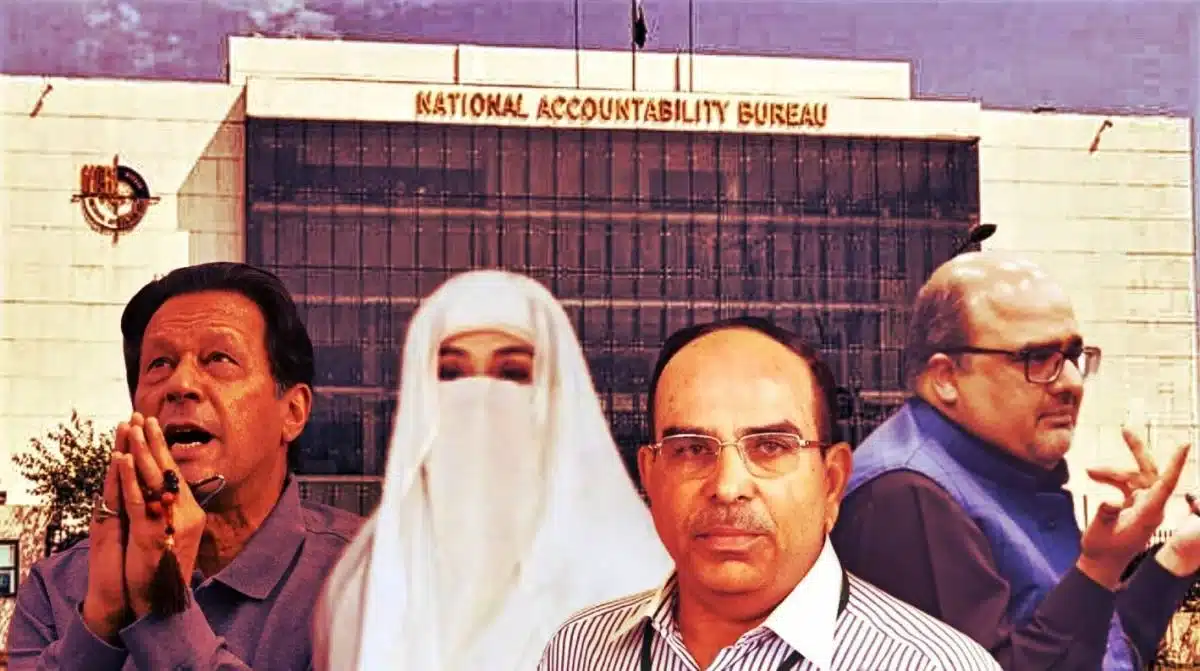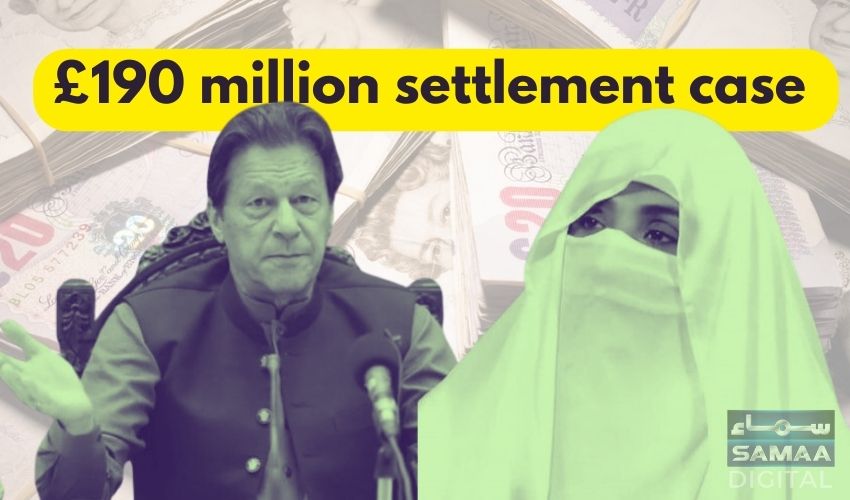Pakistan Tehreek-e-Insaf (PTI) Founder Imran Khan and his wife Bushra Bibi on Monday formally appealed their conviction in the high-profile £190 million case seeking redress from the Islamabad High Court (IHC).
The appeals were submitted by their lawyer Khalid Yousuf in the Islamabad High Court (IHC).
In the appeal, the legal team argued that the National Accountability Bureau (NAB) has “maliciously misused its powers and position” during the investigation.
It highlighted that the accountability court's decision, based on an incomplete investigation, was hasty and unjust.
Furthermore, the appeal asserted that the investigation agency failed to obtain the agreement text from the National Crime Agency (NCA), which indicates the agency's hesitation.
It also claimed that NCA officials were not included in the investigation, and the prosecution failed to present key evidence.
The appeal urged the Islamabad High Court to annul the sentences handed down by the Accountability Court on January 17. The petition also calls for Imran Khan and Bushra Bibi to be acquitted in the £190 million reference.
on January 17, the former PM and his spouse were handed prison sentences and hefty fines by an accountability court.
In a verdict, Accountability Judge Nasir Javed Rana sentenced Imran Khan to 14 years in prison, while Bushra Bibi received a seven-year sentence.
The duo was also imposed with substantial fines, adding further to the legal and financial repercussions of the case.
What is 190 million pound case?
The case centres around the allegation that Imran Khan, along with his wife Bushra Bibi, was involved in providing undue benefits to property tycoon Malik Riaz in exchange for land donated to a charitable trust.
According to Pakistan's National Accountability Bureau (NAB), Malik Riaz, owner of Bahria Town, donated significant assets—458 kanals and 4 marlas of land in Mouza Barkala, District Jhelum—to Khan’s Al-Qadir Trust University.
In return, Khan allegedly facilitated a deal that benefited Malik Riaz by allowing him to recover Rs 50 billion from the United Kingdom's National Crime Agency (NCA), which had previously seized the money due to allegations of money laundering.
The case gained momentum after NAB launched an investigation in October 2022, following the revelation that the 190 million pounds seized by the NCA from Malik Riaz had been transferred to Pakistan. Despite claims of transparency, the funds were not directly returned to Pakistan’s national treasury but were instead reportedly used to pay off Riaz’s debt.
Court hearings and legal proceedings
The Accountability Court, under Judge Nasir Javed Rana, had reserved its verdict on December 18, 2024, following a year-long trial that included over 100 hearings. After several delays, the ruling was set for January 13, 2025. Earlier, the verdict was initially scheduled for December 23, 2024, but was postponed due to unspecified reasons.
The case has seen multiple twists, including the indictment of Imran Khan and Bushra Bibi on February 27, 2024. Their defense team, led by lawyer Khalid Yousuf Chaudhry, has argued that the accusations are politically motivated. The prosecution, however, has presented testimony from key witnesses, including former government officials such as Azam Khan, Pervez Khattak, and Zubaida Jalal, who have recorded their statements.
Key witnesses and absconders
The prosecution brought 35 witnesses to the stand, although 24 witnesses were later dropped from the case. Six co-accused, including Mirza Shahzad Akbar and Farhat Shahzadi, were declared absconders by the court. These absconders remain elusive, and their absence has added an element of uncertainty to the final verdict.
NAB’s investigation also involved scrutiny of the decision made by Imran Khan’s cabinet in 2019, which allegedly facilitated the return of the 190 million pounds to Malik Riaz. The case is particularly significant because of its potential impact on Khan’s political future and his reputation as a champion of anti-corruption reform.
At the heart of the case is the alleged misuse of power by Imran Khan and his cabinet members to return the seized funds to Malik Riaz. According to NAB, a cabinet decision made on December 3, 2019, transferred the £190 million, originally confiscated by the NCA, to the Supreme Court’s account instead of the national treasury. This decision was made under a settlement that Malik Riaz had with the Supreme Court in relation to the Bahria Town Karachi case.
The funds, which had been returned to Pakistan from the UK after being seized due to Malik Riaz’s money-laundering charges, were ultimately used to settle Riaz’s personal debt. The secrecy surrounding the details of the transaction has raised concerns regarding the government’s handling of the state’s financial assets.
Imran Khan’s political opponents have argued that this was a clear case of corruption, accusing the former premier of benefiting a powerful real estate mogul at the expense of the Pakistani public. They further claim that the secrecy surrounding the matter is indicative of financial mismanagement and malpractice at the highest level.
The timeline of case
The timeline of events leading to the present day is as follows:
- October 2022: NAB begins investigating the £190 million funds returned from the UK by the NCA.
- December 3, 2019: A cabinet meeting chaired by Imran Khan allegedly authorizes the decision to return the funds to Malik Riaz.
- December 1, 2023: NAB files the reference against Imran Khan and his wife in the Accountability Court.
- February 27, 2024: Imran Khan and Bushra Bibi are indicted in the case.
- January 13, 2025: The court postponed verdict for the third time
- January 17, 2025: Court convicts Imran Khan and his spouse


























